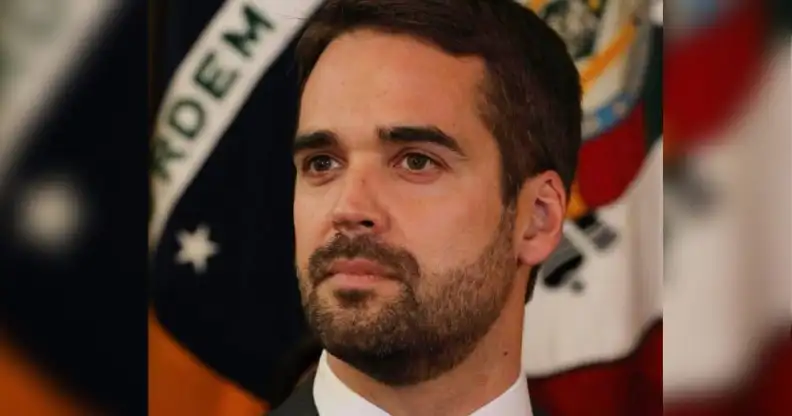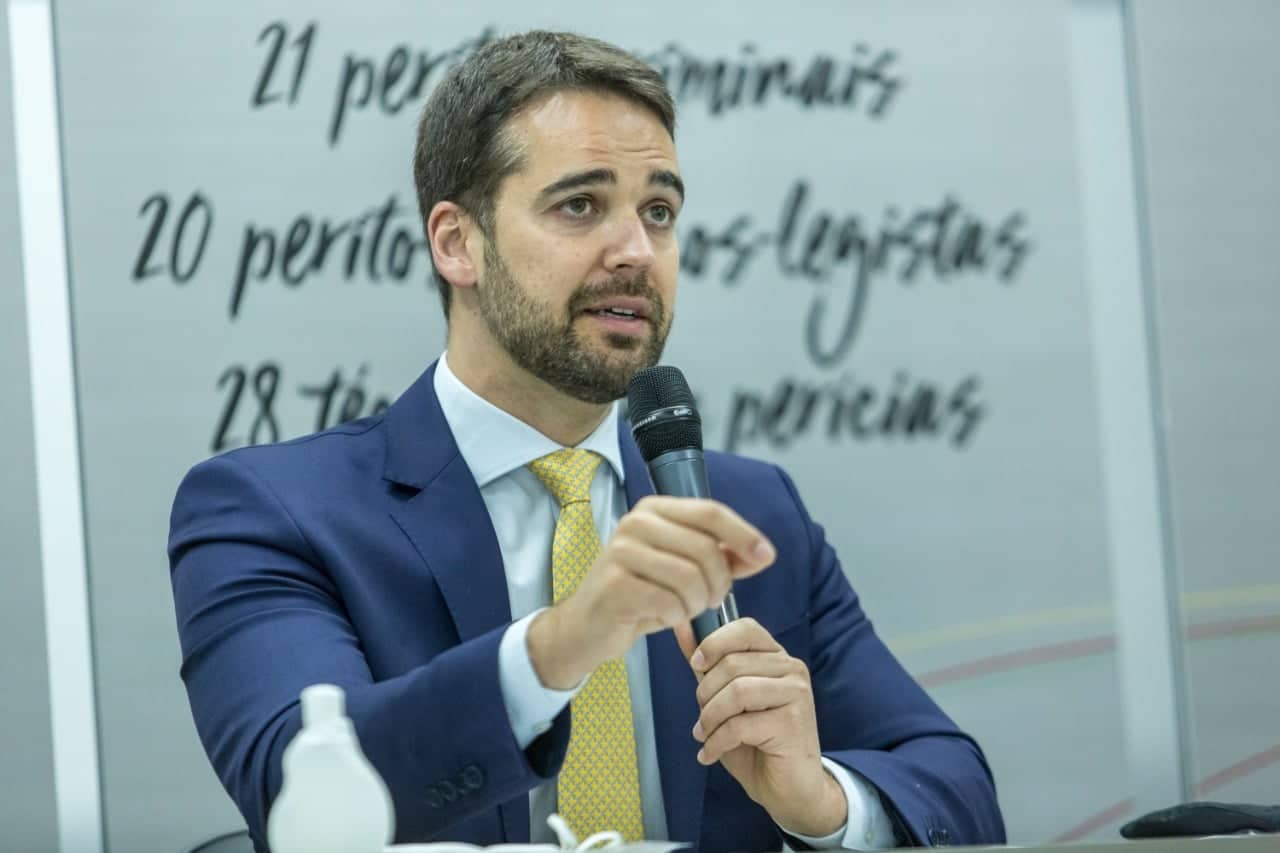Brazilian presidential hopeful comes out as gay ahead of Jair Bolsonaro challenge

Eduardo Leite, one of Brazil’s leading politicians, won’t fight for LGBT+ equality – despite being gay himself. (Facebook/Eduardo Leite)
A Brazilian governor and possible presidential candidate has come out as gay, making waves in a country governed by “proud homophobe” Jair Bolsonaro.
Eduardo Leite, the governor of the southern Rio Grande do Sul state, made the announcement in an interview with the country’s top broadcaster TV Globo on Thursday night (1 July).
“In this Brazil of little integrity, at this time, we have to debate who we are, so that everything is clear and there is nothing to hide,” the 36-year-old said.
“I’m gay – and I’m a governor who is gay rather than a gay governor,” he declared, according the The Guardian, adding: “And I am proud of it.”
Leite chose Pride Week in Brazil to come out, addressing the gossip that’s been swirling around him since he became a potential presidential candidate for the centre-right Brazilian Social Democratic party (PSDB).
He spoke of how this has affected his relationship with his boyfriend of nine months, a doctor for whom he has “enormous admiration and love”.
“Now with my participation in national politics, in this national debate, there have been ever-growing attacks by my rivals,” he said.
“I go out to dinner with my boyfriend, I do not hide from anyone. But there has always been some brouhaha, some allusion, a joke from the president, attacks from other politicians. This is not right, it is not correct, it is not tolerable,” he said.
Eduardo Leite hopes to challenge the far-right president Bolsonaro in next year’s election, a man who once said he would rather his son die than be gay.
The homophobic rhetoric Bolsonaro has cultivated has seen a deadly rise in anti-LGBT+ rhetoric in Brazil, causing one trans politician to flee the country after being targeted with relentless death threats.
Leite reiterated that he had nothing to hide in coming out as gay, but said he wished sexual orientation was “a non-issue” in Brazil.
“I never created a character, I never said I wasn’t, I never tried to make people believe I wasn’t gay,” he added in an interview with Rádio Gaúcha on Friday morning.
He continued the conversation on Jornal do Almoco, with his parents José Luiz Marasco Cavalheiro Leite and Rosa Eliana de Figueiredo joining to share the pride they feel for their son.
“Brazil needs this: for people to expose and say what they feel,” said his father.
“We’ve known for a long time and we were waiting for it to come out. I was even afraid of what it would cause. I was not afraid of what he would say. That was his truth.”
Eduardo Leite coming out ‘made history’
Eduardo Leite’s coming out sparked an outpouring of support from activists and fellow politicians. “You’ve made history,” the veteran LGBT+ campaigner Toni Reis wrote on Facebook.
“I know the pain the prison of the closet represents, particularly in a conservative environment like politics,” tweeted Fabiano Contarato, who became Brazil’s first openly gay senator in 2018.
Leite thanked people for their support, tweeting: “The countless messages of affection and support that I’m receiving leave me absolutely convinced: love will defeat hatred!”
Some were more sceptical of the news, though. Jean Wyllys, the first openly gay member of Brazil’s congress to fight for LGBT+ rights, pointed out that Leite had never repented for his years backing Bolsonaro, who he supported as recently as 2018.
“This chap had many opportunities to defend the LGBT community and he didn’t. On the contrary … he was a Bolsonarista until yesterday – and he’s probably still one today, because at no point has he retracted his support for Bolsonaro,” Wyllys said.
“So I don’t celebrate this. I’m not part of this team of people who are commemorating this chap coming out of the closet as if it was some great accomplishment for Brazil’s LGBT+ community.”
Wyllys went on to suggest that Leite’s announcement was a strategic move designed to boost his presidential hopes.
Asked why he chose this moment to talk about the subject, Leite said: “On a national journey, at a time when the country has an attack on these individual freedoms, blame for the country’s problems is sought and putting blame on minorities, on specific groups, I think it’s important to bring up this issue.”


